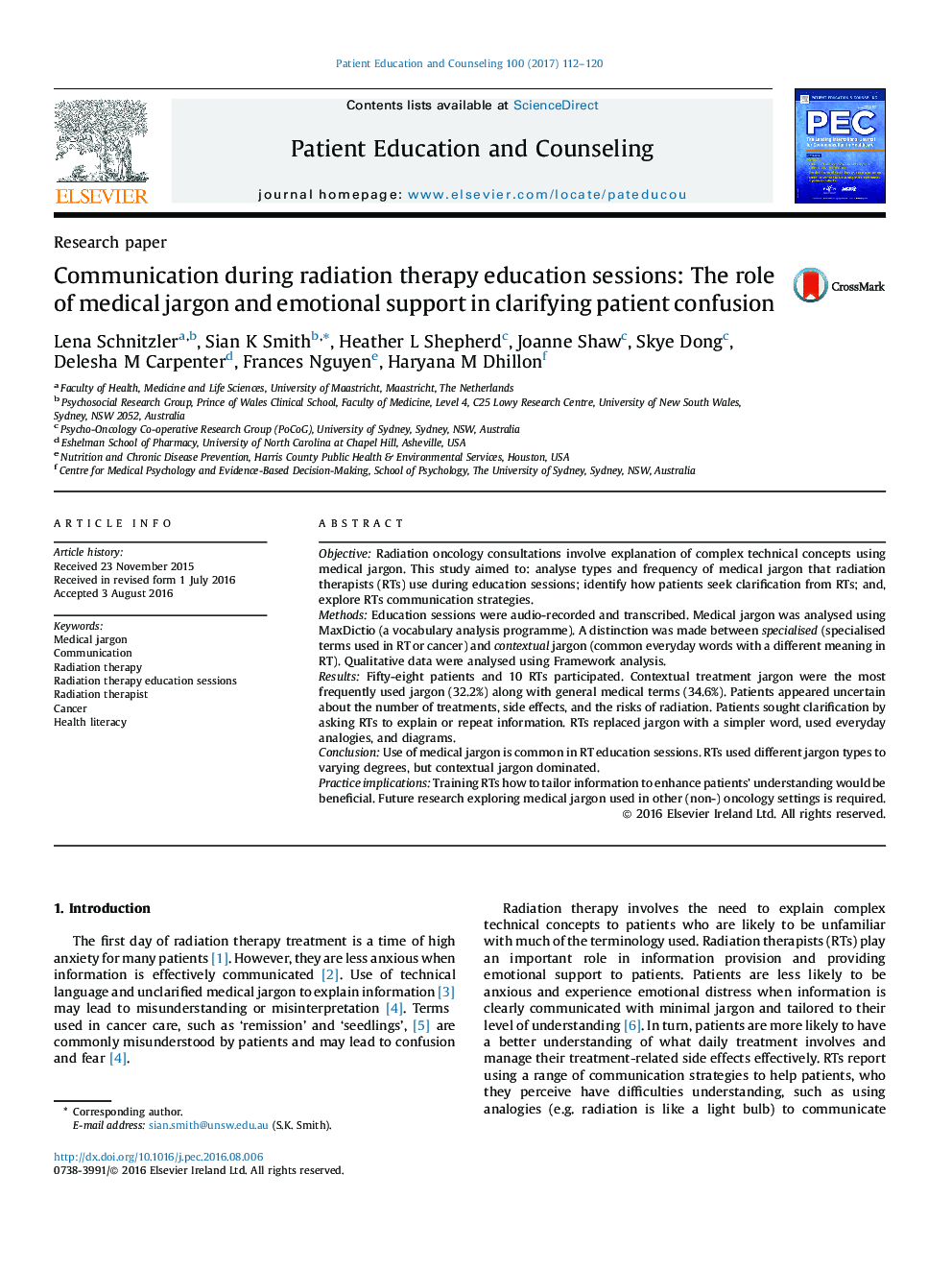| Article ID | Journal | Published Year | Pages | File Type |
|---|---|---|---|---|
| 5682020 | Patient Education and Counseling | 2017 | 9 Pages |
â¢We examined the communication exchange during radiation therapy psycho-education sessions.â¢Patients expressed uncertainty about their treatment plan schedule, the efficacy of treatment and how the treatment machines worked.â¢Patients sought clarification by asking for explanation or repetition of information.â¢RTs used analogies, visual prompts and reassurance to support understanding.â¢Identifying patients' misconceptions and verifying patient understanding is important.
ObjectiveRadiation oncology consultations involve explanation of complex technical concepts using medical jargon. This study aimed to: analyse types and frequency of medical jargon that radiation therapists (RTs) use during education sessions; identify how patients seek clarification from RTs; and, explore RTs communication strategies.MethodsEducation sessions were audio-recorded and transcribed. Medical jargon was analysed using MaxDictio (a vocabulary analysis programme). A distinction was made between specialised (specialised terms used in RT or cancer) and contextual jargon (common everyday words with a different meaning in RT). Qualitative data were analysed using Framework analysis.ResultsFifty-eight patients and 10 RTs participated. Contextual treatment jargon were the most frequently used jargon (32.2%) along with general medical terms (34.6%). Patients appeared uncertain about the number of treatments, side effects, and the risks of radiation. Patients sought clarification by asking RTs to explain or repeat information. RTs replaced jargon with a simpler word, used everyday analogies, and diagrams.ConclusionUse of medical jargon is common in RT education sessions. RTs used different jargon types to varying degrees, but contextual jargon dominated.Practice implicationsTraining RTs how to tailor information to enhance patients' understanding would be beneficial. Future research exploring medical jargon used in other (non-) oncology settings is required.
